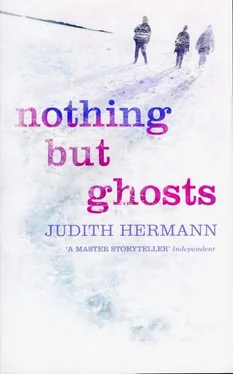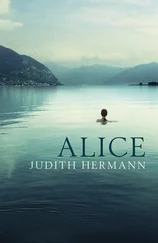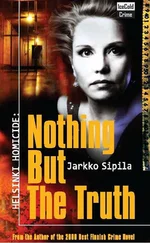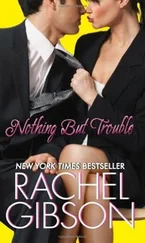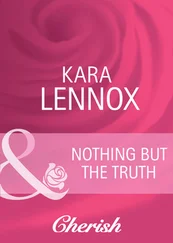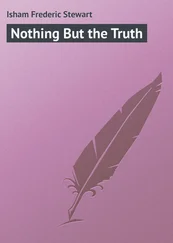Jonas shakes his head, looks at her for the first time; his eyes are green, dark green, a narrow yellow band around the irises. Maybe he’s trying to find an answer, but doesn’t say anything, merely stamps his feet on the snow a few times in his military boots. Irene’s expression is unfathomable; she lights a cigarette as if she thought she had to endure something for a long time yet.
Jonina takes a key out of her jacket pocket and hands it to Magnus. She says, first in Icelandic and then in German, ‘Show them their house.’ She points a short way up the slope where there’s an identical house for Irene and Jonas. ‘I’ve turned on the heat; you have to explain to them how the pool works.’ ‘Poool,’ Jonas says dreamily. Up on the terrace, Sunna emerges from the water and stands naked in the snow.
Outside the kitchen window the sky is now turning blue, the same deep blue that drove Jonas out of his mind every morning last year. Sunna pushes her bowl of cornflakes away, annoyed and tired, and says, ‘I’m leaving now.’ She has been attending school for four months and seems to be moving further and further away from Jonina. In the hall she laces up her boots, slips into her coat, and puts on her fur hat; she looks like an Eskimo, her eyes squeezed into slits. She comes into the kitchen again and kisses Jonina affectionately, then she slams the door shut behind her. The school is at the end of the street. Sometimes Jonina wishes it were further away so that she could take Sunna there, say goodbye to her at the school gate, and watch her until she disappears behind the big door. But Sunna doesn’t want to be taken to school. ‘Shall I take you?’ ‘No. I’ll go by myself.’
Jonina continues to sit at the kitchen table and gazes across the hall into the big room – our room – the white sofa in front of the window, a bunch of gladioli in a large green vase on the floor, on the windowsill a brass candlestick; that’s all. She really should wake up Magnus; he has to go to work in an hour. She doesn’t get up. She could put some small stones on the windowsill, the flat polished stones from the beach at Dyrhóolaey, abraded till they’re flat as paper, black and almost soft. Or some shells. Suddenly she feels close to tears, feels an unusual theatrical impulse to put her hands up to her face and burst into tears; it’s silly. She doesn’t even know why she should be crying.
She remembers the morning a year and a half ago when she woke up next to Magnus, in his apartment, in the bachelor room with the tiny window and the stone floor and his permanently clammy bed and the piles of books all around the bed, wine glasses, ashtrays. It seems that here in the new apartment Magnus wanted to put an end to that clutter once and for all. She woke up, watched Magnus sleeping for a long time; then she got dressed without waking him, and went home. Later, when he called, she didn’t pick up the phone. She couldn’t have explained why, not to anyone, and least of all to herself. Magnus didn’t call again, quite as if he had known. And four months later, she was standing outside his door again, chastened and determined, once and for all. He let her in, said, ‘That was that,’ and they didn’t talk about it, not ever again.
All the lights go on in the house across the street and then go out again. The sky gets lighter, someone walks down the stairs and slams the front door of the apartment block; further away a car drives off, the refrigerator hums softly. The odd simultaneity of the sounds, the concentration on an elusive something. Last year, after a night of drinking, Jonas had said, ‘I feel like sitting in a dark cellar and watching black and white cartoon films.’ Jonina found that he was often able to say things like that, things she immediately understood. Focused sentences, even though he was never focused, at least not focused on the outside world, on the things around him, the emotional and physical state of others. It was as if he were autistic, given up entirely to his own happiness or unhappiness. I’d like to be like that too now and then, Jonina thinks; I felt that way back then and then forgot about it, and the photo brought it all back – I want to be like that too sometimes.
Irene and Jonas stay in their house. Magnus comes back after he’s taken them up. They’ll be down for supper. Jonina knows that all the houses in Olurfsbudir are alike, and it makes her uneasy – identical furnishings, the same view of the mountains, the snow and the oncoming darkness – the thought that Irene and Jonas are moving about in front of the same backdrop as she and Magnus and Sunna. The same setting but a different conversation. What are they talking about up there, if they’re talking at all?
Sunna is lying on the bed in their bedroom, watching a children’s film on the portable TV. Magnus is sitting on the sofa, reading. He reads all the time. Every conversation with him is always a conversation between two paragraphs of the book he’s immersed in at the moment. Jonina has given up trying to break him of that habit. She knows she should start to cook, yet doesn’t feel the slightest urge to do so. She says, ‘Say something.’
‘Like what?’ Magnus asks amiably, not looking up from his book; he goes on reading.
‘What are they like, tell me what they’re like; for example, what sort of relationship do they have.’ Only for example.
‘They don’t live together,’ Magnus says slowly, finishes reading a sentence, then looks at Jonina. ‘Is that what you wanted to know? They’re not living together; they both seem to be stuck in tragic relationships. On the way here, Irene talked with someone on her mobile phone and then hung up, furious. And last night Jonas talked of nothing but the woman who’s just left him. They don’t live together, but Irene says Jonas is her best friend. Has been for years. They’ve known each other for a relatively long time; they must have met shortly after I left Berlin or while I was still there – I have no idea. I didn’t know all of Irene’s friends.’ He closes the book halfway, leaving his index finger between the pages.
‘That’s what Irene says,’ Jonina remarks. ‘And what does Jonas say?’
‘Jonas says nothing,’ Magnus replies with irritation. ‘She talked to me because she knows me. Because she was giving me some personal information. He wasn’t there when she told me. And he doesn’t know me at all; why should he say to me, “Irene is my best friend”?’
Magnus is right. He puts away his book and lights a cigarette, inhales deeply, puffs the smoke out; then he sighs. The conversation bores him. ‘And don’t you think they’re a peculiar couple? So very different from each other, at least at first glance?’ Jonina says, pushing the glass door open and shutting it again, trying to recall what it was she wanted to do just now.
‘Best friends are always different from each other,’ Magnus replied in a funny didactic tone. ‘Because they are different, they can be friends, right? Otherwise, what would be the sense in being friends? And you yourself said it – different at first glance. At first glance.’
‘I’m probably mistaken,’ Jonina says, perplexed. She empties the refrigerator, and then puts the things back again. Maybe they ought to grill something. Cook some fish, maybe soup. She has no idea what. She also realizes that they haven’t been together with other people for a long time. They’re mostly by themselves. She and Magnus and Sunna. They work a lot. Are tired in the evenings. Don’t drink as much as they used to. She says, ‘You cook. I can’t cook. I don’t feel like cooking.’ And Magnus says, ‘In a minute, OK? I just want to finish this page, and then I’ll cook for us all.’
Towards evening, she goes up to the other house to get Irene and Jonas. It has begun to snow again. The cabin is quiet and dark; Jonina is afraid of finding them naked in the pool, but the pool is empty. She steps up on the terrace; the glass door is open. For a moment Jonina can’t see anything; then she makes out Irene and Jonas on the sofa. Irene is sitting and Jonas is lying on his back, his head in her lap. ‘Hello,’ Irene says. Jonas sits up, not at all embarrassed, and turns on the light. Irene says matter-of-factly, ‘With the room dark, you can see the outside better. And we were in the pool for hours. It is beautiful here, Jonina.’ She has a way of pronouncing Jonina’s name in a childish, trusting way that sounds strange to Jonina. Jonina puts her hands in her trouser pockets and doesn’t know what to say. On the table are cigarettes, a bottle of vodka but no glasses, a camera, several rolls of film, three books, a bunch of keys, a hairbrush and an ashtray. Jonina feels a compulsive desire to pick up all these objects and examine them.
Читать дальше
